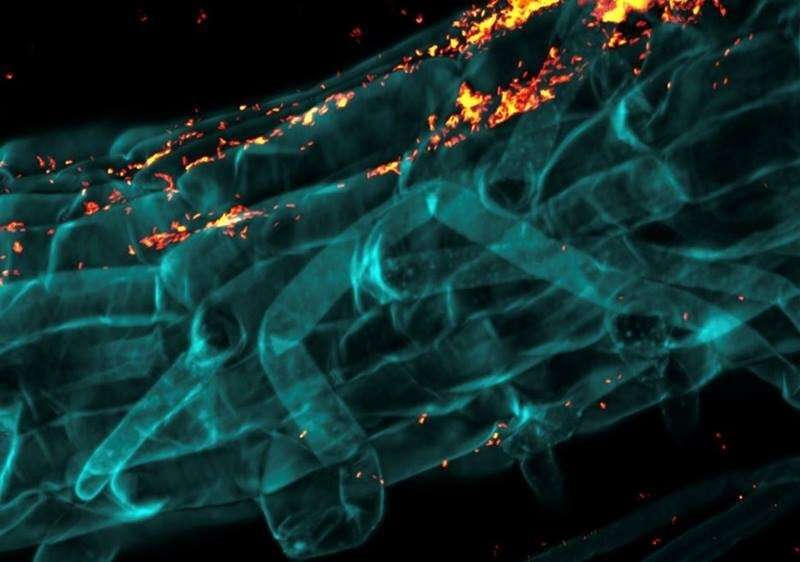This article has been reviewed according to Science X's editorial process and policies. Editors have highlighted the following attributes while ensuring the content's credibility:
fact-checked
peer-reviewed publication
trusted source
proofread
Host genetics shown to play a significant role in the composition of switchgrass root microbiomes

Plants provide a home for a wide diversity of microbes, especially in their roots. In turn, these communities can provide important benefits for the host. A study published in Current Biology investigated how the genetics of host plants determine the composition of the bacterial communities associated with the plants' roots. The study identified a core set of bacterial strains that colonize switchgrass roots.
Many of these bacteria differ in abundance across plants' genotypes. The study then mapped genes in the host genome that appear to affect the abundance of these microbes. This mapping revealed that genes involved in host immunity, plant development, and hormone signaling have roles in how plants acquire their microbiome.
Plants rely on their microbiomes to perform vital functions. Researchers seek to breed plant varieties to increase the beneficial associations with bacteria. However, scientists have limited knowledge of the extent to which host genetics affect the composition of the microbiome.
This study found that the genotype of a host switchgrass plant affects a large portion of the plant's microbiome. The study also identified the switchgrass genes that appear to influence the abundance of these microbes. These results may help to engineer or breed plant varieties that form stronger beneficial associations with their microbiomes.
Plant-associated microbiota can contribute significantly to plant growth and yield. How host genetic variation affects the root-microbiome assembly is an open question. In this study, researchers used a common garden approach with field sites in Texas, Missouri, and Michigan to uncover the composition of the switchgrass root microbiome, characterize the effect of environment vs. host genetics on the composition of the root microbiome, and identify putative loci in the host genome implicated the differential microbiome composition. The team included scientists from the University of Texas at Austin, the HudsonAlpha Institute for Biotechnology, the Joint Genome Institute at Lawrence Berkeley National Laboratory, the University of Missouri, and Michigan State University.
Through sequencing efforts at the Joint Genome Institute, the researchers found that switchgrass root microbiota composition is largely site dependent. Nevertheless, there is a conserved set of core bacteria found in high abundance on roots across sites. Most of these core microbes differ in abundance between host genotypes in an environmentally dependent manner.
Finally, the researchers used a genome wide association study (GWAS) framework to identify loci in the host genome associated with the differing abundance of these microbes. Variation in genes implicated in plant immunity, development, and signaling were associated with microbiome compositional differences. These results provide a deeper understanding of the mechanisms plants use to modify their microbiota and give an avenue for breeding host plants to tailor their microbiome.
More information: Joseph A. Edwards et al, Genetic determinants of switchgrass-root-associated microbiota in field sites spanning its natural range, Current Biology (2023). DOI: 10.1016/j.cub.2023.03.078
Journal information: Current Biology
Provided by US Department of Energy




















